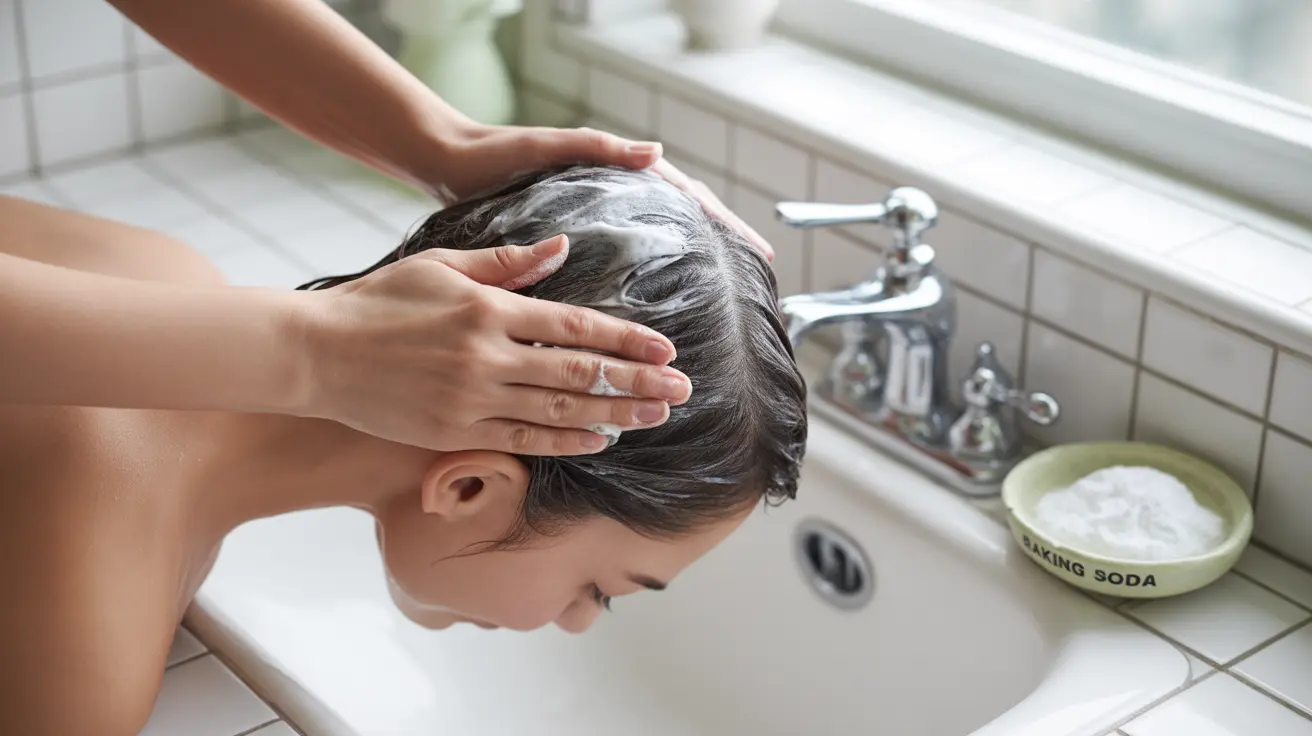Dealing with dandruff can be frustrating, and many people are turning to natural remedies like baking soda as a potential solution. This common household ingredient has gained attention for its potential anti-fungal and exfoliating properties that might help combat those pesky white flakes. But does it really work, and more importantly, is it safe for your scalp?
In this comprehensive guide, we'll explore the science behind using baking soda for dandruff, examine its effectiveness, and provide important safety guidelines for those considering this treatment option.
How Baking Soda May Help with Dandruff
Baking soda (sodium bicarbonate) potentially helps with dandruff through several mechanisms:
- Exfoliation of dead skin cells
- Balancing scalp pH levels
- Absorption of excess oil and debris
- Potential anti-fungal properties
While these properties make baking soda seem promising, it's important to understand that scientific research specifically studying its effectiveness for dandruff is limited.
Proper Application Method
If you decide to try baking soda for dandruff, follow these steps for safe application:
- Mix 1-2 tablespoons of baking soda with enough water to create a paste
- Apply the mixture directly to damp scalp
- Gently massage with fingertips for 2-3 minutes
- Leave on for no more than 3-5 minutes
- Rinse thoroughly with lukewarm water
Potential Risks and Side Effects
While baking soda is natural, it can cause several adverse effects when used on the scalp:
- Scalp irritation and redness
- Excessive dryness
- Disruption of natural pH balance
- Hair damage and breakage
- Increased sensitivity to sun exposure
These risks are particularly important for people with sensitive skin or existing scalp conditions.
Safe Usage Guidelines
To minimize potential risks when using baking soda for dandruff:
- Start with a patch test on a small area
- Use no more than once per week initially
- Never leave the mixture on for extended periods
- Discontinue use if irritation occurs
- Always follow with a moisturizing conditioner
Alternative Dandruff Solutions
Consider these proven alternatives if baking soda isn't suitable for you:
- Anti-dandruff shampoos containing pyrithione zinc
- Tea tree oil-based products
- Selenium sulfide treatments
- Ketoconazole shampoo
- Apple cider vinegar rinses
Frequently Asked Questions
Does baking soda really help get rid of dandruff and how effective is it?
Baking soda may help reduce dandruff through its exfoliating and pH-balancing properties. However, its effectiveness varies among individuals, and scientific evidence specifically supporting its use for dandruff is limited. Some people report temporary improvement, while others may not see significant benefits.
What are the risks or side effects of using baking soda on the scalp for dandruff?
The main risks include scalp irritation, dryness, pH disruption, and potential hair damage. Some people may experience redness, itching, or increased sensitivity. Those with sensitive skin or existing scalp conditions should be particularly cautious.
How often can baking soda be safely used to treat dandruff without damaging hair?
For most people, using baking soda no more than once per week is recommended to avoid potential damage. Some may need to use it even less frequently. Always monitor your scalp's reaction and discontinue use if you notice any adverse effects.
Are there better or safer alternatives to baking soda for managing dandruff?
Yes, there are several proven alternatives that may be safer and more effective than baking soda. These include medicated anti-dandruff shampoos containing ingredients like pyrithione zinc, ketoconazole, or selenium sulfide. These products have been specifically formulated and tested for dandruff treatment.
How should baking soda be applied to the scalp if used for dandruff treatment?
Create a paste by mixing 1-2 tablespoons of baking soda with enough water to form a spreadable consistency. Apply to a damp scalp, massage gently for 2-3 minutes, and rinse thoroughly after no more than 3-5 minutes. Always follow with a moisturizing conditioner to prevent dryness.




